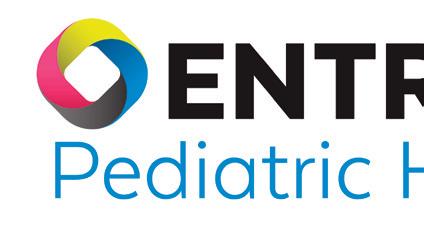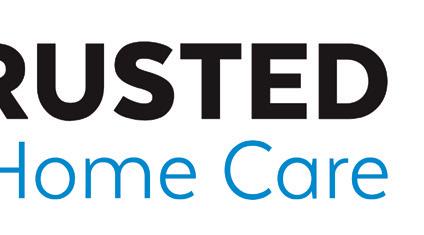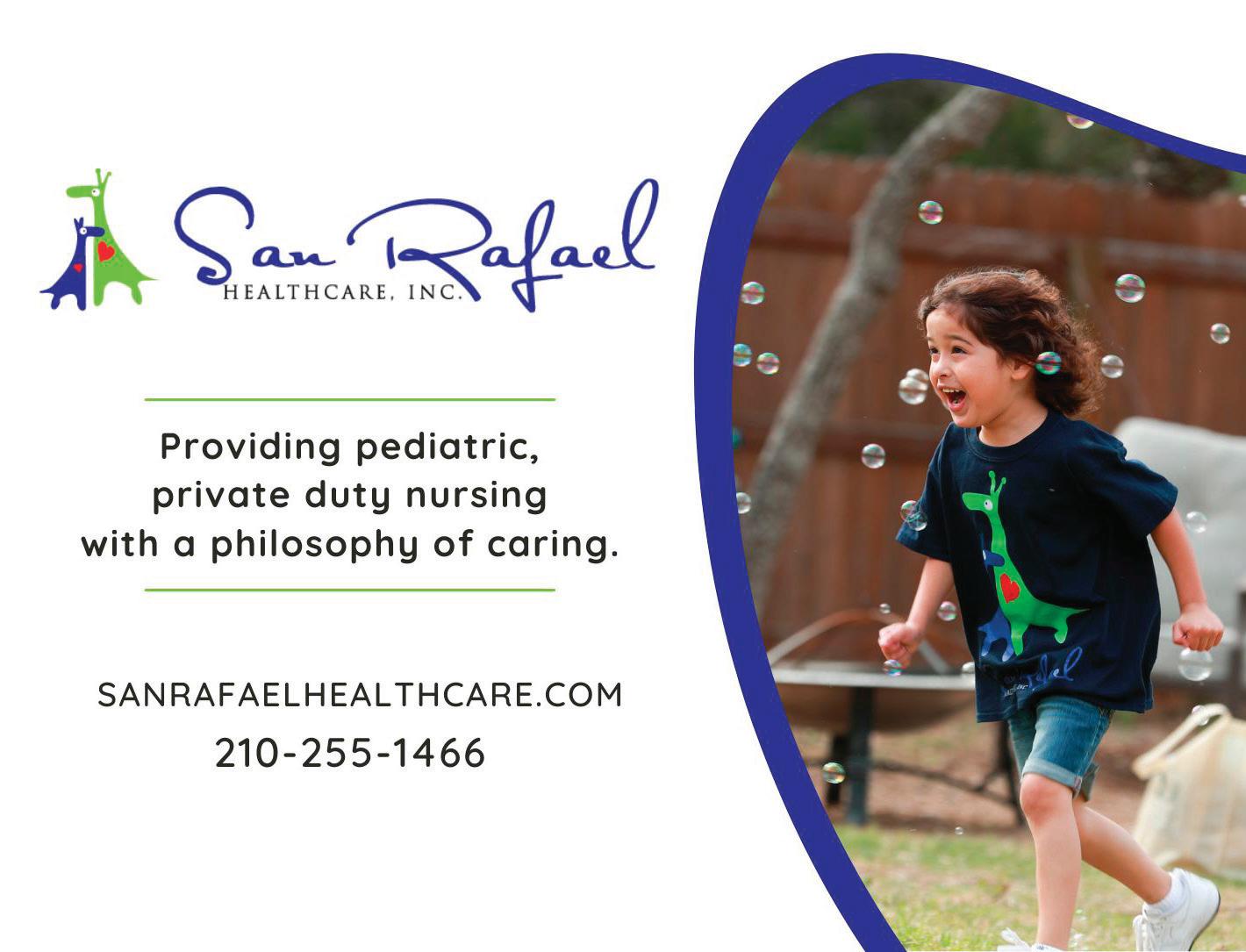
5 minute read
Finding A Medical Home
Ruchi Kaushik, MD, MPH, FAAP

Advertisement
If you have a child with special needs, you must find your family a medical home. The American Academy of Pediatrics (AAP) defines a medical home as accessible, continuous, comprehensive, family-centered, coordinated, compassionate, and culturally-effective. Your pediatrician is your quarterback, and if your child has multiple issues requiring technology, therapies, and home health nursing, your pediatrician’s office should serve as your medical home in the following ways:
Accessible:
Your primary care pediatrician’s office should be easy to access. When you call to make a well child appointment, you should always be scheduled with your regular doctor. If your child is ill, does the office same-day appointments? Does the office answer questions by phone or portal in a timely fashion?
Be sure to pay attention to where and how many disabled parking spots there are, so you can easily maneuver your child and her equipment into and out of the building. If you use non-emergent ambulance transport, does the office accommodate adequate space for the stretcher? Laboratory and diagnostic imaging facilities should be easily accessed as well.
Continuous:
A medical home should give you the opportunity to see your doctor as often as possible, for both well child and sick visits. For children with special needs and multiple diagnoses, your doctor knows your family’s medical, developmental, mental, and social needs best.
Transitions are often challenging for families of children with special needs. After urgent care/ emergency department (UC/ED) visits or hospitalizations, your medical home should schedule followup visits to catch up on new findings, changes to medications, laboratory and diagnostic imaging results, and to make sure your child is getting better. If your child’s hospitalization is prolonged, hospital staff may often schedule a care conference to help summarize what happened during the stay so everyone understands the plan moving forward. When time permits, primary care pediatricians who care for children with special needs often attend these care conferences to help you make a smooth transition.
As your teen approaches adulthood, finding a new medical home and team of providers will become necessary and your pediatric medical home should help you plan this transition as well.
Comprehensive:
Your medical home should provide primary care (well child checks, vaccines, guidance about nutrition, development, safety and discipline) and acute care (sick visits, follow-ups from ED visits or hospitalizations). Your pediatrician should have a relationship with your preferred hospital to stay up-to-date on your child’s health status and any changes.
The medical home should also serve as a place to keep all of your medical records, including discharge summaries from the hospital and consultation notes from specialists you see outside of your pediatrician’s network.
Family-Centered:
Families of children with special needs are unique and your pediatrician needs to be prepared to not only care for your child with multiple issues, but to also recognize when your other children are being affected by the dynamic in the home.
Decision-making should be shared--you should be offered options when it is time to make decisions, and everyone’s vote (including yours!) counts equally.
Pediatricians realize that accessing health care is a complex phenomenon and involves many issues outside of the clinic setting. A social worker, an integral part of the medical home team, can help tackle the problems of insurance coverage, public housing, and food insecurity.
Coordinated:
Obtaining referrals and orders for laboratory or diagnostic imaging tests should be well coordinated. Pediatricians should collaborate with subspecialists to create a shared care plan. Your medical home should also communicate with therapy providers, home health nursing agencies, and durable medical equipment (DME) vendors.
Compassionate:
The pediatrician and staff of a medical home should recognize that every family is different and every caregiver will have different goals for her child. If there are differences of opinion, you should still feel that you are receiving compassionate care from your doctors and nurses.
Culturally-sensitive:
This is different from language-barriers. Certainly, you should receive the care your child needs in your preferred languages, but diverse cultures carry diverse beliefs about health and treatment. Your medical home should devise a care plan that seriously incorporates your cultural preferences.
If you believe your child is eligible to see a complex care pediatrician and are looking for a medical home, please call 210-704-4966.
A pediatric home health agency provides personalized attention and services to medically fragile children in their home. Home health agencies can provide several services including private duty nursing, speech, occupational, and physical therapy, as well as attendant services. Not all agencies provide all services, and not all children qualify for all services.
An agency will coordinate with parents / caregivers, physicians, therapists, and medical equipment suppliers to develop a customized plan of care. Agencies follow certain guidelines to determine medically necessary services which depend on your child’s level of care. A plan of care is developed by the interdisciplinary team caring for your child and signed by your physician. These signed orders are then sent to your insurance for review and approval. The insurance agency will ultimately decide on the medically appropriate services.
You can expect the following from a pediatric home health agency:

- An RN Case manager to oversee your child’s case o An individualized, patient specific care plan o Nurses who will provide assessment, treatment, education and support o Access to information about your child’s care

- Versatile schedules o Agencies work with you to choose the schedule that best fulfills your needs in accordance with the number of hours approved by your physician and insurance agency. o Every effort is made to fully staff your chosen schedule. However, due to nurses’ illness, vacations, personal circumstances, and / or staff shortages, no guarantee can be made that all hours are staffed. o You and your RN case manager will work together to approve the nurse / therapist / attendant who will be in your home
Keeping your child at home has enormous benefits for the entire family. It not only keeps your child close to you in an environment where they feel safe and comfortable, but it also relieves some stress for the family due to, among other things, missed worked and hospital visits.
Choosing a home health agency to care for your child is a very important decision. You should work with an agency where you feel comfortable, and your healthcare needs are met. You always have the right to choose your home health agency.

Charcuterie
A charcuterie is typically a board that is full of cold meats and cheeses. Since this board is specifically for kids we are expanding that to include chips, crackers, sweets, fruit, pizza and chicken nuggets!

Kids Charcuterie Board
Author

Susie Weinrich

Ingredients
• cheese sticks
• dino nuggets
• mini pizza bagels
• mini pepperonis
• dips - ketchup and/or mustard, and ranch
• grapes
• strawberries
• carrots
• ritz crackers
• goldfish
• pretzels
• pringles
• snack mix or trail mix
• M&M's
• mini Reese's peanut butter cups (be careful of peanut allergies!!)
Instructions
1. Arrange all the components on a large surface, board or plate. Let the kids graze on the board either before dinner or FOR dinner!

• fresh mozzarella pearls, cheese cubes, mini babybel cheese, yogurt tubes, applesauce pouches
• mango, pineapple, watermelon, blueberries, blackberries or raspberries
• cucumbers, olives, celery, mini pickles, mini sweet peppers
• trail mix, chex mix, fritos, doritos, crackers, veggie straws, cheez-its, pretzel thins, popcorn
• pizza rolls, mini pb&j, chicken fingers, salami, rolled up deli meat
• Reese’s Pieces, gummy bears, gummy worms, starbursts, twizzlers, hershey kisses




